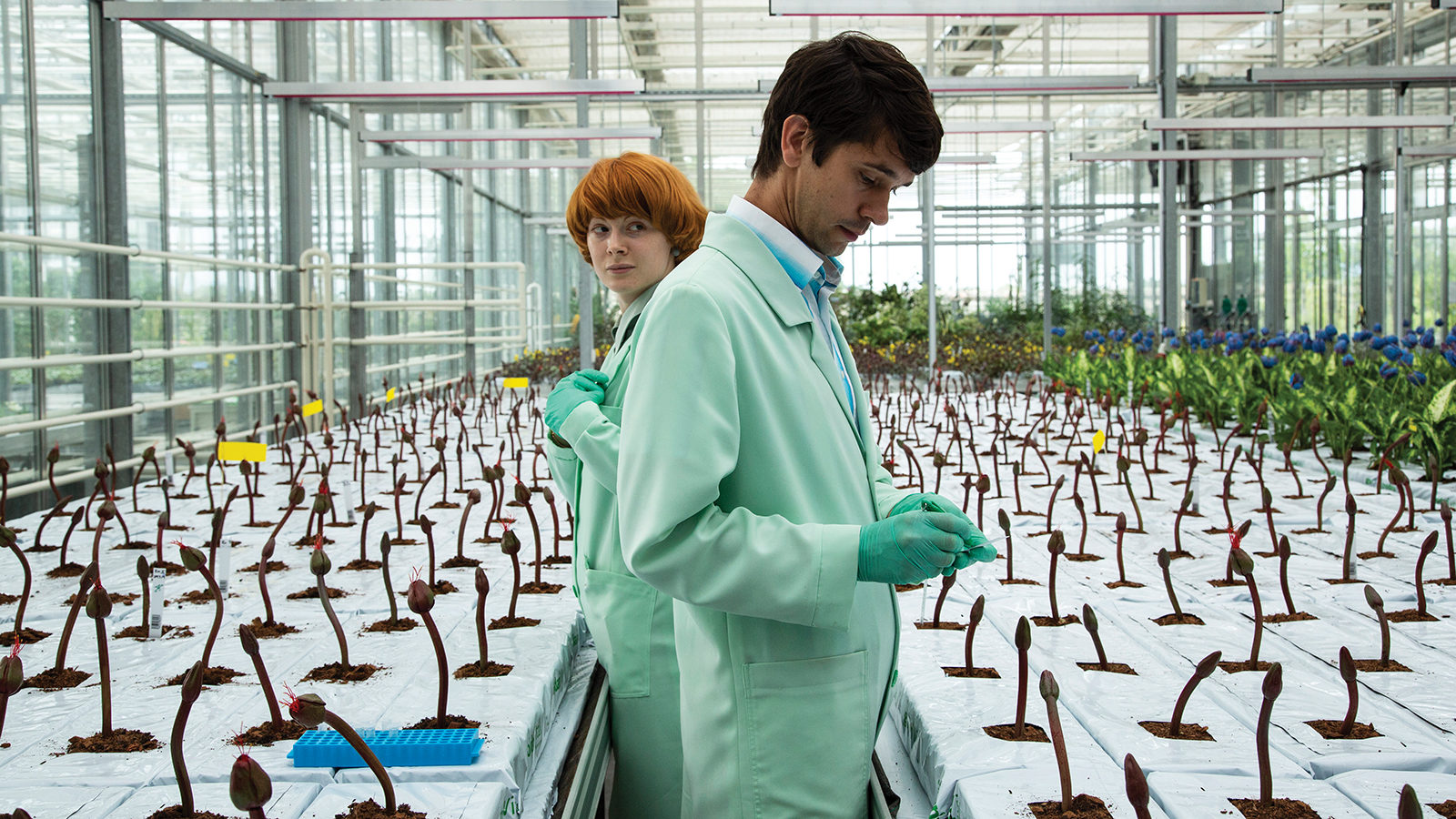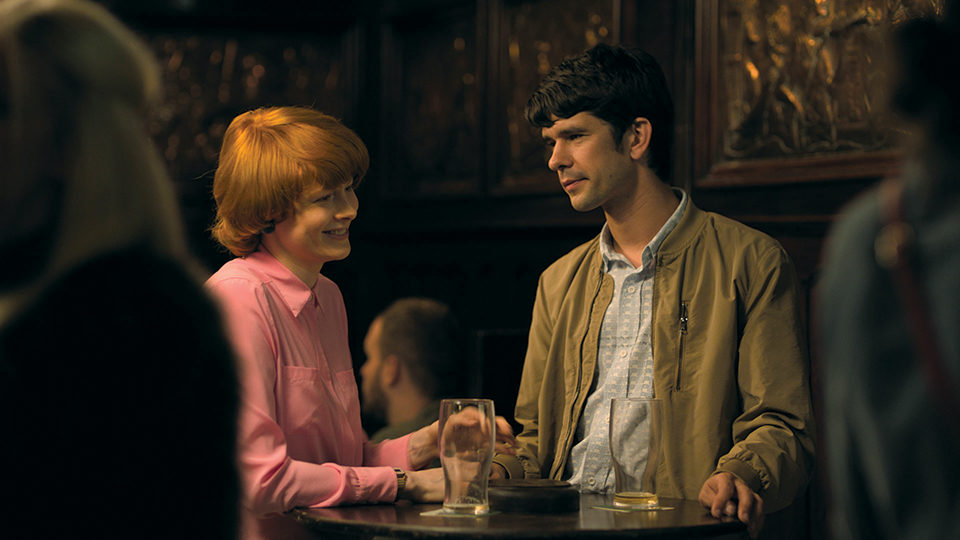By Yonca Talu in the November-December 2019 Issue

The Big Screen: Little Joe
(Jessica Hausner; Austria/UK/Germany; Magnolia Films; Opening December 6)
Drawing as much from fairy tales as from psychological horror, Austrian director Jessica Hausner’s rigorously crafted movies investigate the uncanny forces lurking beneath reality’s placid surface. Whether a mountain resort in Hotel (2004), a pilgrimage town in Lourdes (2009), or a 19th-century bourgeois house in Amour fou (2014), the filmmaker excels at investing seemingly ordinary settings with supernaturally tinged narratives. In Little Joe, her fifth feature and first in English, Hausner fully embraces her genre influences to chart the disquieting repercussions of an antidepressant houseplant conceived by Alice (Emily Beecham), a gifted geneticist and single mother. Guilt-ridden for spending more time in the laboratory than with her teenage son, Joe (Kit Connor), Alice offers him a sample of the attractive crimson flower to keep him company and baptizes it “Little Joe.” But this innocent premise morphs into a variation on the Frankenstein story when Alice’s brainchild defies its own sterility by taking over the bodies of those exposed to its pollen.

From the November-December 2019 Issue
Also in this issue
As with the miraculous healing of Lourdes’s disabled protagonist played by Sylvie Testud, Hausner and co-writer Géraldine Bajard inject ambiguity into Little Joe’s plot, leaving it to the audience to decide if the plant truly exerts a malevolent power over mankind or if its effects are merely symptoms of Alice’s conflicted subconscious. Pushing her trademark symmetrical mise en scène to ominous degrees, the director frames Alice and her colleagues in compositions that emphasize the alienating quality of the commercial greenhouse in which they work. Matching the poised rhythm of the performances, avant-garde composer Teiji Ito’s engrossing percussion and flute music enhances the sense of eeriness produced by the lurid, candy-colored palette. Sound design plays a particularly evocative role in situations of panic and disarray like a scene in which Bella (Kerry Fox), a plant breeder marginalized for her background of clinical depression, finds herself locked in the nursery during her night shift. The boundaries between reality and imagination disintegrate as Bella’s desperate cries for help blend into a chilling symphony of squeaky strings and relentless barking—an allusion to her beloved dog, Bello, which she puts to sleep with the conviction that its personality has been irrevocably corrupted by Little Joe. An example of Hausner’s ability to create suspense out of formal elements, the sequence is served by Fox’s committed portrayal of a woman who fights to survive in a hostile environment that tests the limits of her sanity.

Little Joe (Jessica Hausner, 2019)
This kind of visceral escalation is precisely what is lacking in Little Joe’s confrontational mother-son moments, which suffer from poor dialogue and clumsy staging. Although the film abounds with intimate interactions between Alice and Joe at the dinner table or in the car, their relationship almost exclusively revolves around their mutual interest in the plant and never quite comes to life. As in her previous work, Hausner attempts to conceal her story’s emotional shallowness behind a polished aesthetic that equally gratifies and numbs the viewer. The animated blooming flower stimulates our senses, but it fails to distract us from dramaturgical weaknesses such as the jarringly violent way in which the well-behaved Joe begins rejecting his mother as a result of being contaminated—or is he simply stepping into adolescence? Hausner aims to convince us that the open-endedness at stake is a productive one, but it’s difficult to shake the feeling of having been deceived and manipulated by Little Joe when the closing credits roll.







